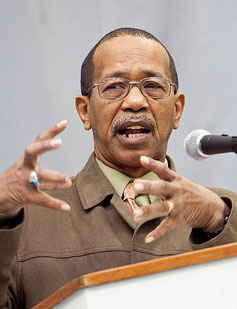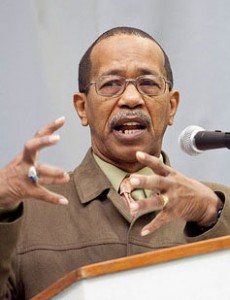 Dr. Duane Jackson was 17 when he met Dr. Martin Luther King, Jr. for the first time. On Monday, in commemoration of the minister and his works, Jackson recalled that day for the assembled student body of The Williston Northampton School.
Dr. Duane Jackson was 17 when he met Dr. Martin Luther King, Jr. for the first time. On Monday, in commemoration of the minister and his works, Jackson recalled that day for the assembled student body of The Williston Northampton School.
“You will have three, four, maybe five pivotal points in your life,” Jackson told the students. “Meeting Dr. King was a pivotal point for me.”
Check out photos of Jackson’s visit on Flickr.
Jackson’s keynote was the highlight of events designed to celebrate the life and work of Dr. Martin Luther King, Jr. and the diversity that his efforts inspired. Other events included a Friday-night lecture on cultural diversity with four members of the Williston community.
While he would begin the day describing de facto segregation, 1960s sit-ins, and racism, by mid-afternoon, Jackson would be deep in discussion about the mating habits of lightening bugs and defensive strategies of butterflies.
Jackson, an associate professor of psychology at Morehouse College, took it all in stride, switching easily from anecdotes about meeting Dr. King, to his research in animal behavior. As Jackson quipped during assembly, “I don’t need notes because I’m talking from life experiences.”
In his keynote, Jackson took his audience back to the deep south of the 1960s and what he called the “Cotton Curtain”—the racial equivalent to the Iron Curtain of communism.
“You would look on TV and see dogs and water hoses” being turned on protesters, Jackson said.
Jackson, who had been born and raised in Chicago, said that he had initially had big plans to attend either the University of California, Los Angeles, or the University of Hawaii.
When his father pushed his alma mater of Morehouse College in Atlanta, Georgia, 17-year-old Jackson resisted. The two visited the College and neighboring area, but Jackson still refused.
Finally, in a last-ditch attempt, the elder Jackson took his son to the lobby of an Atlanta office building.
“I went in a room, and there was a man standing at the window. He turned…and it was Martin Luther King,” Jackson said. “He said, ‘What’s wrong with you? I graduated from Morehouse. My father graduated from Morehouse. Your father graduated from Morehouse. Are you too good to go to Morehouse?’
“I didn’t say anything,” Jackson told the Williston Northampton audience. “He said,
‘What are you going to do?’ I said, ‘I’m going to Morehouse.’”
Jackson would meet King again during a protest march in Atlanta when the minister stepped in to prevent supporters and rally opponents from coming to blows.
Jackson urged the Williston Northampton students to use the King’s model of non-violent action—and incorporate modern tools such as cell phones and Twitter—to make their own positive changes.
“It was amazing that we were able to organize and we didn’t have cell phones, we didn’t have Twitter,” Jackson said. “If we had the technology you all have…I don’t know. It might have been much faster.”
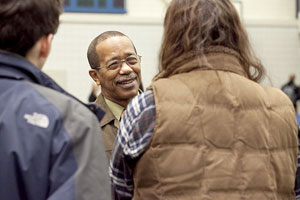
In the afternoon, Jackson stopped by the Williston Northampton Middle School to talk about African-Americans contributions to science. The seventh- and eighth-graders listened carefully to his description of the contributions of George Washington Carver, Charles Turner, and Earnest Just.
Jackson concluded the talk with a few quirky facts on insect behavior and hands shot into the air.
“Can fireflies bite?” asked one girl. “Have you ever eaten any bugs?” asked a boy. “What is the firefly glow made of?” asked another boy.
The answers came just as quickly: no, their mouths are too small; yes, lemon ants which taste like lemon drops; it’s made of two chemicals that mix to form bioluminescence.
When a student then asked why he studied insects—rather than animals or birds—Jackson paused.
“Insects were just a hobby, but the hobby grew into something,” he said. “Things don’t always happen the way you think they will. Things just happen.”
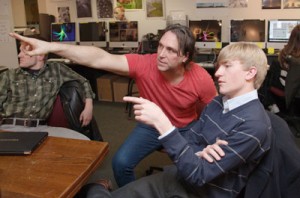 Capturing lipstick as it drips, the gleam of broken eggs, or cockroaches swarming a sneaker-strewn table—and making them look beautiful—requires particular photography skills.
Capturing lipstick as it drips, the gleam of broken eggs, or cockroaches swarming a sneaker-strewn table—and making them look beautiful—requires particular photography skills.

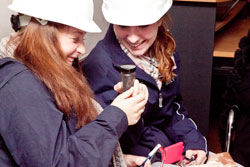
 The 21 students of the AP environmental science class trooped into the room at the Mt. Tom Power Plant. The trip had been billed as a tour of the facilities, but the students weren’t exactly sure what to expect.
The 21 students of the AP environmental science class trooped into the room at the Mt. Tom Power Plant. The trip had been billed as a tour of the facilities, but the students weren’t exactly sure what to expect.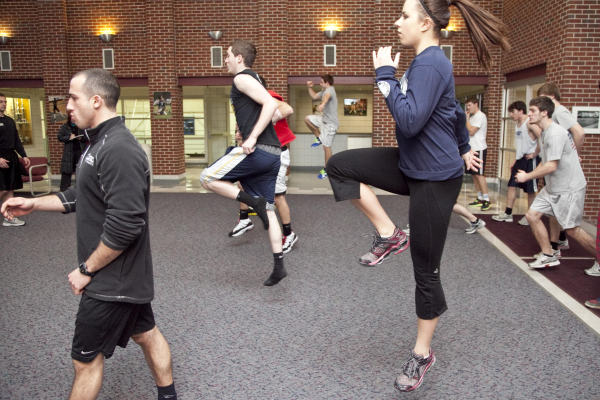
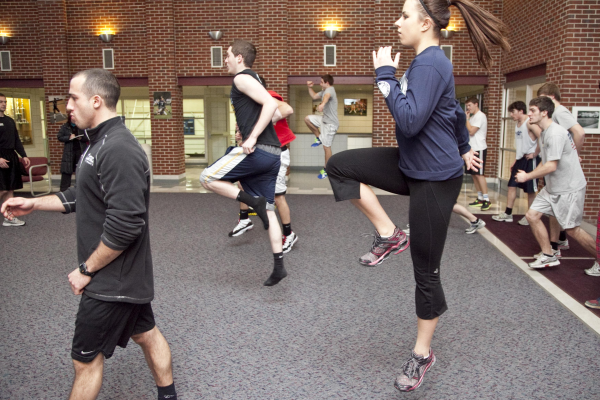

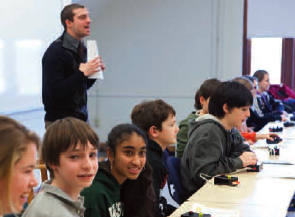 Williston Latin students participated in the Pioneer Valley Classical Association’s Classics Day 2012, which was held again this year at Mount Holyoke College on Friday, January 20th.
Williston Latin students participated in the Pioneer Valley Classical Association’s Classics Day 2012, which was held again this year at Mount Holyoke College on Friday, January 20th.